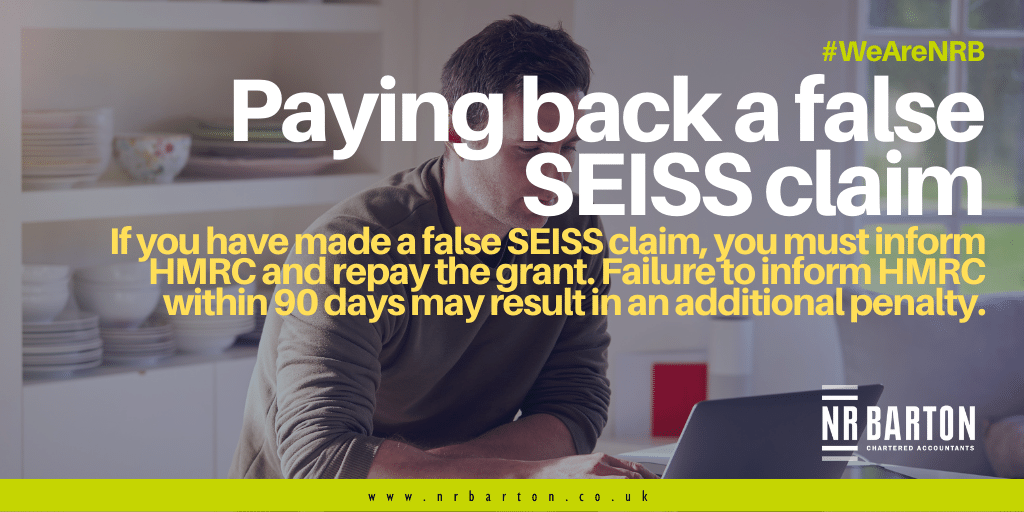The Self-Employment Income Support Scheme (SEISS) provided financial support for self-employed individuals who experienced a reduction in profits due to the coronavirus pandemic. However, the scheme was subject to a lot of dishonesty; people were claiming SEISS payments, despite their business not experiencing a reduction in profits.
You must tell HMRC if, when you made the claim, you were not eligible for the grant. For example:
- For the first or second grant, your business was not adversely affected
- For the third, fourth or fifth grant, your business had not been impacted by reduced activity, capacity or demand or inability to trade in the relevant periods.
- You did not intend to continue to trade
- You’ve incorporated your business
You must also tell HMRC if you:
- Received more than you were entitled to
- Amended any of your tax returns on or after 03 March 2021 in a way that means you’re no longer eligible or are entitled to a lower fourth or fifth grant than you received.
- Made a mistake reporting your turnover in your claim for the fifth grant, meaning you are entitled to a lower grant than you received.
When do I have to tell HMRC?
In most cases, if you’re not eligible and have to pay the grant back, you must tell HMRC within 90 days of receiving the money. However, if there is an amendment to any of your tax returns on or after 03 March 2021 that affects your eligibility, you must tell HMRC:
- Within 90 days of receiving the grant if your return was amended before claiming.
- Within 90 days of making the amendment if your return was amended after receiving your grant.
What happens if I do not tell HMRC?
If you do not tell HMRC within 90 days of your amendment, or payment of the grant, you may also have to pay a penalty. While there is no definitive answer on how much this penalty would be, HMRC have issued some guidance on how they price the penalties. This is a three-tiered system where HMRC will determine how deliberate the false claim was:
- For non-deliberate false claims, the penalty range is from 0% to 30% of the amount borrowed.
- False claims which are determined to be deliberate have a penalty range of 20% to 70% of the amount borrowed.
- For deliberate claims which HMRC believe were ‘deliberate and concealed’, the penalty range is from 30% to 100% of the amount borrowed.
For more information on how the penalty system works, click here.
If you think you may have falsely claimed a SEISS grant, you must contact HMRC to discuss this with them. The only situation where you are not required to tell HMRC is if the grant amount you are eligible for has lowered by £100 or less or if the grant received was £100 or less. Even if you are not sure, you should still inform HMRC using the online form.
What information will I need?
In order to access the online portal to tell HMRC, you will need the following:
- Your Government Gateway user ID and password that you used when you made your claim
- Your grant claim reference – this can be found in the online service or on your copy of the grant claim
- Your Self-Assessment Unique Taxpayer Reference (UTR) number
Through the online service, you will be given bank details to which you can pay the money back and you will only be contacted by HMRC if there is an issue with your payment.
If you have any questions about the content in this article, please contact your usual relationship Partner or Manager and we will be happy to help.


